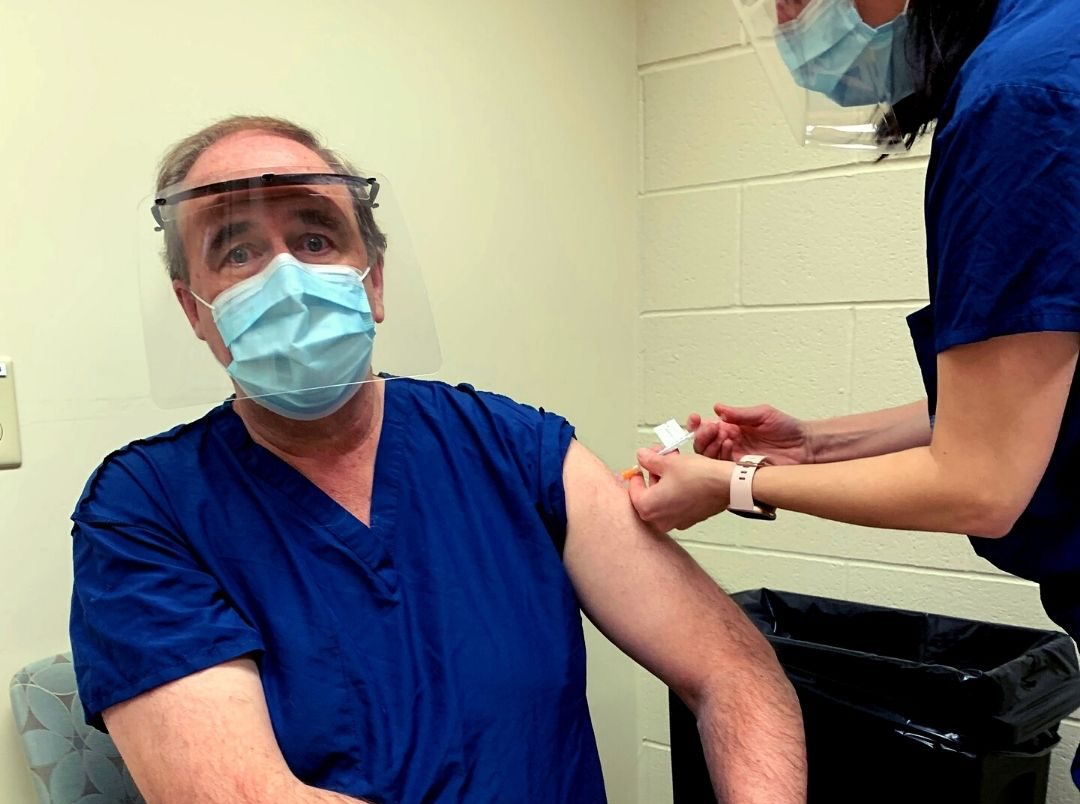Dr. Ian Cowan is the first physician in the region to receive the COVID-19 vaccine at the North Bay Regional Health Centre (NBRHC).
“There’s actually some joy and excitement in the building today,” said Paul Heinrich, CEO of the NBRHC. “Frankly, I haven’t stopped smiling all day.”
Dr. Cowan has been leading the hospital’s COVID-19 assessment centre for the majority of the pandemic, including the mobile assessment team that tested residents in the Skyline – Lancelot Apartment building.
“Frankly, it’s a bit distressing when you have to send your teams into dangerous places,” Heinrich added. “It’s the perfect gift for this week.”
Heinrich says he expects roughly 450 of his staff will be vaccinated by the end of the week.
The vaccinations come roughly a year after preparations for COVID-19’s North American arrival began to take shape.
Over the past year, the hospital has had to reserve 30 percent of its beds to accommodate COVID-19 patients, putting some elective surgeries and procedures on hold.
After a couple of months, those procedures were able to resume, and have been going on since.
“Looking at our situation now, we don’t have surgical waitlists, and we’re very proud of that fact,” Heinrich noted.
In the summer, the NBRHC was directed to provide roughly 13 percent of its beds to long-term care facilities in the region. This was in response to the province’s ending of ward care which saw three or four patients in close proximity.
“What that effectively did for the Nipissing-Timiskaming area, is that it effectively removed 165 beds from our total inventory capacity,” Heinrich said.
Heinrich says the bed shortage did cause some problems for a short time until the hospital received 35 new ones. Currently, Heinrich says there are about 410 beds in the NBRHC.
While Heinrich and the hospital prepared for the worst of the pandemic, the NBRHC never housed more than four COVID-19 patients at a single time. Its capacity is roughly 40 beds.
“It’s a shoutout to our community and our partners in care for basically managing the pandemic throughout in a collective way,” Heinrich said.
Although Heinrich sees a “light at the end of the tunnel” with his staff beginning to receive vaccines, he knows there is still work to be done.
“We’re still in the middle of it. We can’t let our guard down for some time yet. But I think we can breathe a little more easily,” he finished.






